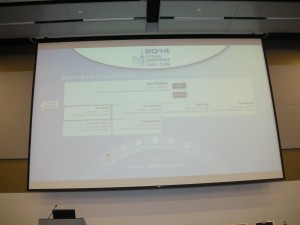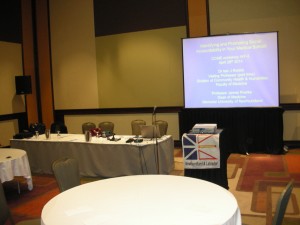Background
Bourdieu’s theory of cultural reproduction (1977) can be applied to medical education as the way educators reproduce their cultural capital and habitus in their students. Social accountability describes the concept in which medical faculties direct their education, research and service activities to meet the health needs of their populations
(www.aspire-to-excellence.org).
Methods
The assessment of excellence in social accountability took place at Memorial’s Faculty of Medicine using a Bourdieusian framework. Opportunistic semi-structured interviews with staff, students and health care providers, and observations of practices occurred over a two week period in 2012 repeated one year later in 2013. During 2012/13 the Faculty underwent a full accreditation survey of the MD program and finalised a new MD curriculum.
Results
There was dissonance between the rhetoric about social accountability and the reality in teaching and learning practices in each form of Bourdieu’s capital (cultural, social, economic, environmental). To generate strategies in support of social accountability (Claussen, 2012) it is necessary to have high congruence between individuals’ (staff and student) dispositions and each form of capital. Low congruence indicated that cultural reproduction was perpetuating existing power and capital and not meeting health needs (Mossop, 2013).
Conclusions
The faculty cannot demonstrate excellence in social accountability without understanding cultural reproduction. Population health needs will have limited consideration and health inequalities will persist.
Research should investigate the meanings to staff and students of cultural reproduction and social accountability. A strategy will be needed to promote changes in culture and habitus to increase social accountability.


